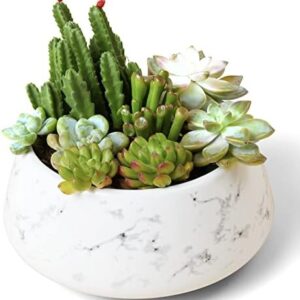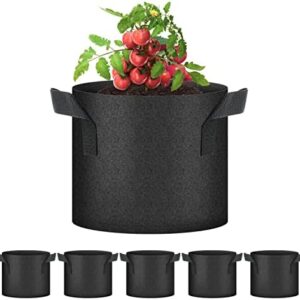Organic gardening is a growing trend that is becoming more and more popular as people become increasingly interested in living a healthier lifestyle and reducing their impact on the environment. The concept of organic gardening is not new, but it has gained more attention in recent years as people realize the benefits of growing their own food using natural and sustainable methods.
Organic gardening is essentially a way of growing fruits, vegetables, and herbs without using synthetic chemicals or pesticides. Instead, organic gardeners rely on natural methods to improve the health of their garden and produce high-quality, nutrient-dense produce.
One of the main reasons why organic gardening is becoming more popular is because of the health benefits associated with eating organic produce. Organic fruits and vegetables are grown without the use of synthetic pesticides and fertilizers, which means they are free from harmful chemicals that can be detrimental to our health. By growing your own organic produce, you can ensure that you are consuming food that is not only delicious but also good for you.
In addition to the health benefits, organic gardening is also better for the environment. Conventional farming methods often rely on the use of synthetic chemicals that can pollute the soil, water, and air. By choosing to grow your own food using organic methods, you are helping to protect the environment and reduce your carbon footprint.
Getting started with organic gardening may seem daunting, but it is actually quite simple. Here are some tips for beginners who are interested in starting their own organic garden:
1. Start small: If you are new to gardening, it is best to start with a small plot or container garden to get a feel for the process. This will allow you to learn the basics of gardening without feeling overwhelmed.
2. Choose the right location: When selecting a location for your garden, make sure it receives plenty of sunlight and has good drainage. Most fruits and vegetables need at least 6-8 hours of sunlight per day to grow properly.
3. Prepare the soil: Healthy soil is the foundation of a successful organic garden. Before planting, make sure to amend your soil with compost or organic matter to improve its structure and fertility.
4. Select the right plants: Choose plants that are well-suited to your specific growing conditions. Research the types of fruits and vegetables that thrive in your area and make sure to plant them at the appropriate time of year.
5. Practice crop rotation: To prevent pests and diseases from taking hold in your garden, it is important to rotate your crops each year. This will help to maintain the health of your soil and reduce the likelihood of problems arising.
6. Use natural pest control methods: Instead of relying on chemical pesticides, try using natural methods to control pests in your garden. For example, you can attract beneficial insects like ladybugs and lacewings to help keep pest populations in check.
7. Water wisely: Be mindful of how much water your garden needs and try to water early in the day to minimize evaporation. Consider using a rain barrel to collect water for your garden and reduce your water usage.
8. Embrace diversity: Plant a variety of fruits, vegetables, and herbs in your garden to promote biodiversity and attract beneficial insects. This will help to create a balanced ecosystem that is less susceptible to pests and diseases.
By following these tips, you can get started on your journey to becoming an organic gardener and enjoy the many benefits that come with growing your own food. Not only will you have access to fresh, healthy produce, but you will also be contributing to a more sustainable and environmentally-friendly way of living. Organic gardening is a rewarding and fulfilling hobby that allows you to connect with nature and appreciate the beauty of the world around you. So grab your shovel and seeds, and get ready to start growing your own organic garden today!






